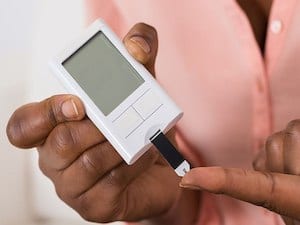
FRIDAY, March 30, 2018 (HealthDay News) — New research shows that for people with type 1 diabetes who can no longer sense when their blood sugar levels drop too low, an islet cell transplant can dramatically improve their lives.
Some people with type 1 diabetes develop a condition called hypoglycemia unawareness, which means they no longer feel symptoms when their blood sugar levels are dropping dangerously. This can lead to severe low blood sugar levels (hypoglycemia), which can cause seizures and coma.
“It’s hard to understand the impact on everyday life and lifestyle and self-esteem this can have,” said study co-author Dr. Nancy Bridges. She is chief of transplantation at the U.S. National Institute of Allergy and Infectious Diseases.
“This is people who may have to give up driving. People who might not be able to take care of their own children. People who may lose their jobs or who can’t do their jobs. People who have to live with the notion that every decision you make might lead to an uncontrollable hypoglycemic event. Am I going to be able to walk the dog? Or, will I wake up two blocks away with the EMTs standing over me? The impact on their lives is enormous,” Bridges explained.
Because the impact on their lives is so significant, people who repeatedly experience these severe hypoglycemic episodes are eligible for islet cell transplants.
Islet cells are cells found in the pancreas that produce the hormone insulin. Insulin helps usher the sugar from foods into the body’s cells to be used as fuel. In type 1 diabetes, the immune system attacks and destroys islet cells, mistakenly seeing them as foreign invaders.
This leaves people with type 1 diabetes without enough insulin. They must replace the lost insulin through multiple daily injections or via an insulin pump. However, getting the dose of insulin right can be a difficult balancing act, and too much insulin will cause hypoglycemia.
Bridges said most people with type 1 diabetes can manage fairly well with insulin treatment and not experience these severe low blood sugar episodes. But for those who do have this problem, an islet cell transplant can help.
However, the procedure isn’t without its own risks, and it’s still considered investigational in the United States. Because it’s a transplant of foreign materials into the body, people need to take immune-suppressing medication for the rest of their lives. These medications are known to increase the risk of infections and cancer. But in people with diabetes, one of the biggest concerns is the effect these medications can have on the kidneys, according to Bridges.
“This is something that’s debated among diabetologists. Why would we want to impose a treatment that carries the burden of immunosuppression when insulin works well for most people? But given what we know about the physical and emotional burden of hypoglycemia unawareness, we thought patients would feel it was a good trade-off,” Bridges said.
The study, which was a phase 3 clinical trial, included 48 people with type 1 diabetes who had hypoglycemia unawareness. They were between 26 and 65 years old, with an average age of 48. The average duration of their diabetes was 28 years. All received transplants of islet cells.
The participants also completed four quality-of-life surveys before and after the transplant.
Almost 90 percent of the participants stopped having severe hypoglycemic events for at least a year. They also were able to achieve normal blood sugar levels, some without the need for insulin injections.
Both groups — those who were free from insulin and those who still needed it — reported similar improvements in quality of life.
“There were drastic improvements in quality of life. Their fear of hypoglycemia goes away,” said Bridges. And even people with just a few functioning islet cells were still able to regain their awareness of hypoglycemia so they could prevent those severe episodes.
Dr. Andrew Stewart, director of the Diabetes, Obesity and Metabolic Institute at the Icahn School of Medicine at Mount Sinai in New York City, reviewed the findings.
“This is an interesting study that shows that these considerable and very realistic worries and fears are lessened over the course of the first year following pancreatic islet transplantation,” he said.
“In addition, it underscores the point that it is not necessary to become insulin-free to achieve these quality-of-life improvements,” Stewart added.
He said the study does leave some questions unanswered, such as: Is the reduction in hypoglycemia unawareness caused by the islet cell transplants, or from the immune-suppressing drugs?
The study was published online recently in the journal Diabetes Care. Funding for the study was provided by the U.S. National Institute of Allergy and Infectious Diseases and the U.S. National Institute of Diabetes and Digestive and Kidney Diseases.
More information
Learn more about pancreatic islet cell transplants from the U.S. National Institute of Diabetes and Digestive and Kidney Diseases.
